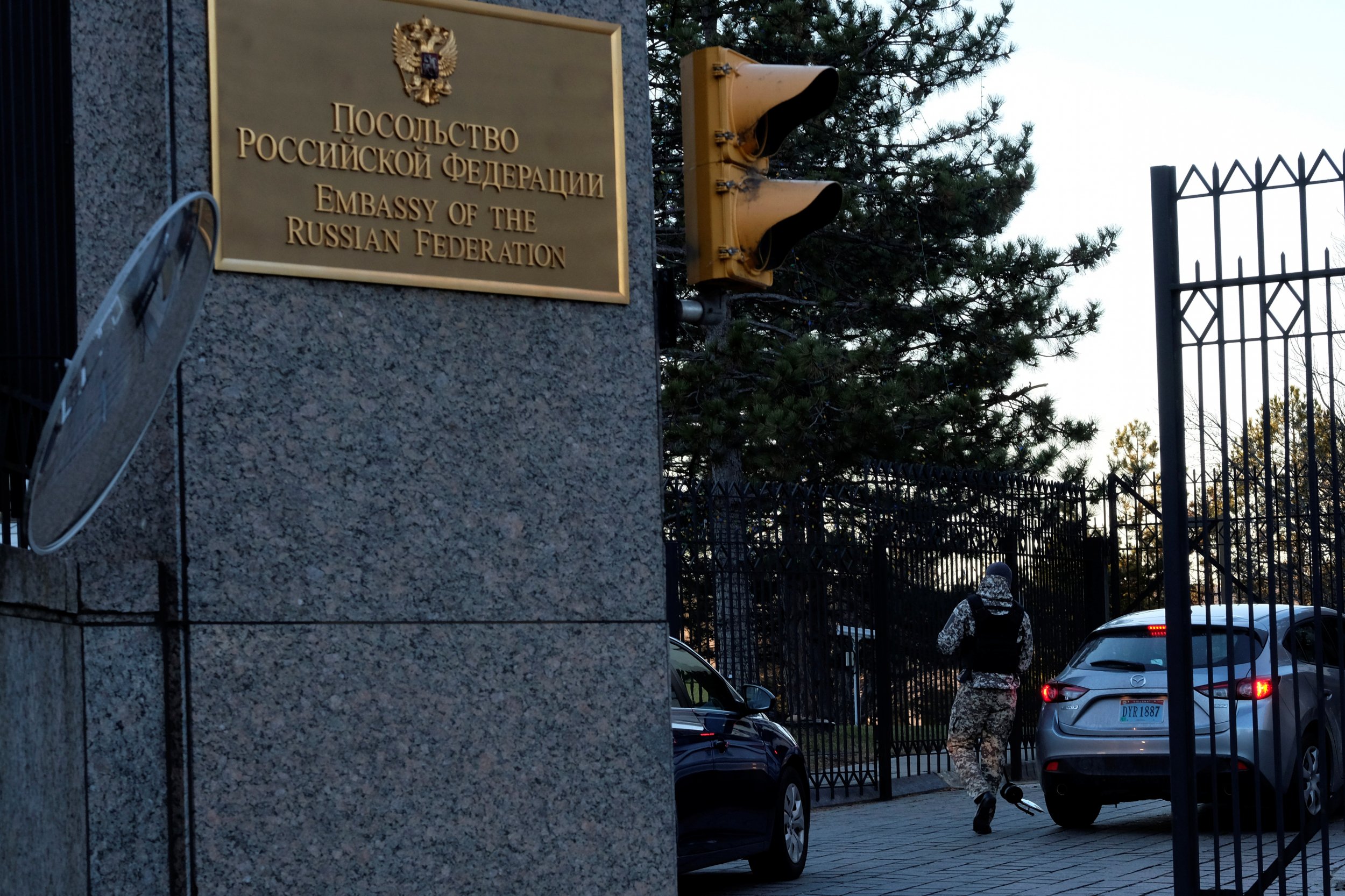
Russia's embassy in Washington has accused the U.S. of wrongfully arresting and detaining a Russian national accused of cyber fraud.
The Russian Embassy to the U.S. officially commented Wednesday on the case of Yury Martyshev, a Russian who was reportedly arrested in Latvia and extradited to the U.S. for allegedly illegally gaining access to the private financial information of bank card holders, according to reports by The Moscow Times and the state-run TASS Russian News Agency. The embassy said it had provided Martyshev with "necessary consular assistance" and had contacted the suspect via telephone at a prison in Alexandria, Virginia. The embassy also stated it had requested to visit Martyshev as soon as possible, denouncing his arrest as a breach of bilateral cooperation on crime.
"We consider this arrest as another case of kidnapping of a Russian citizen by the U.S. authorities in violation of the current bilateral agreement on mutual legal assistance in criminal matters as of 1999. The Embassy demands from the American side unconditional observance of the legitimate rights and interests of the Russian citizen," the embassy wrote in a Facebook post.

The embassy's remarks come amid a highly politicized dispute between Moscow and Washington over international policy and accusations that Russia interfered in the 2016 U.S. presidential election. After pledging to restore U.S.-Russia ties that were damaged during the administration of President Barack Obama, President Donald Trump and Russian President Vladimir Putin—former political allies—had a falling out in April over their differing stances on the conflict in Syria. Trump has since expressed stronger support of the Western military alliance NATO and of Ukraine, both of which accuse Russia of pursuing aggressive policies in Europe. Russia denies this, and has fortified its positions in Europe and the Middle East both politically and militarily.
In the final weeks of the Obama administration, Russia's diplomatic assets in the U.S. were brought into the mounting political feud between the countries. In December, the U.S. seized Russian diplomatic properties in Maryland and Long Island and expelled 35 diplomats after intelligence reports suggested Moscow had sponsored hacks intended to influence the presidential race in favor of Trump. More than six months later, Putin's foreign affairs adviser, Yuri Ushakov, said Monday that, despite his government showing "unusual flexibility," Moscow "has its limits" and would "take retaliatory measures" if Trump did not reverse his predecessor's decision, according to the Associated Press.
Russia demands from US unconditional observance of the legitimate rights and interests of Y.Martyshev https://t.co/EnMvPVrKkS pic.twitter.com/WOaQRUZwHy
— Russian Embassy in USA 🇷🇺 (@RusEmbUSA) July 5, 2017
Russia has long criticized the U.S. for what it calls "the unacceptable practice of 'hunting' for Russian citizens around the world," according to a travel warning posted in February by the Russian Foreign Ministry. The statement urged Russians to exercise caution when traveling in foreign countries where the U.S. was thought to have strong influence, and it cited 30 incidents of authorities detaining or arresting Russian citizens at the behest of the U.S. In April, Spanish authorities arrested Peter Levashov, a Russian national accused of hacking, in his hotel room in Barcelona at the request of U.S. authorities.
The latest diplomatic spat involving the Russian embassy comes just ahead of Trump and Putin's first meeting, set to take place Friday at the G-20 summit in Hamburg, Germany. The leaders are expected to face off over Syria and Ukraine, among other issues, and address their pledges to improve relations between the two nations.
Uncommon Knowledge
Newsweek is committed to challenging conventional wisdom and finding connections in the search for common ground.
Newsweek is committed to challenging conventional wisdom and finding connections in the search for common ground.
About the writer
Based in his hometown of Staten Island, New York City, Tom O'Connor is an award-winning Senior Writer of Foreign Policy ... Read more
To read how Newsweek uses AI as a newsroom tool, Click here.





